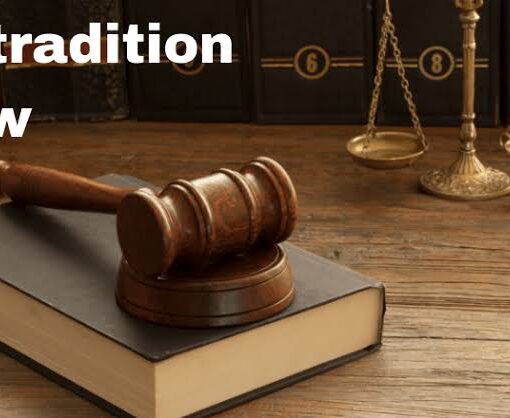The question of whether a priest can report a crime from confession is a complex and controversial one. On one hand, the duty to maintain the confidentiality of confession is seen as essential to the trust and openness that penitents have when seeking forgiveness and spiritual guidance. This principle encourages individuals to confess their sins without fear of legal repercussions.
On the other hand, society recognizes the importance of reporting crimes to law enforcement authorities to ensure the safety and well-being of the community. If a priest becomes aware of a serious crime, such as child abuse or a threat to public safety, their moral obligation to protect potential victims may conflict with their duty to keep confession confidential.
In some jurisdictions, laws known as “mandatory reporting” laws require certain professionals, including clergy members, to report certain crimes even if they learn about them in the course of their confidential duties. However, the specifics of these laws vary widely, and the relationship between these legal requirements and the religious principle of confession confidentiality is a contentious issue.
In practice, this creates a complex ethical dilemma for priests who may find themselves torn between their religious obligations and their responsibilities as citizens. Some priests might argue that they would encourage the person confessing to also report the crime to the authorities, and they might even refuse absolution until the person takes steps to address the situation outside of confession.
The debate around this issue involves considerations of religious freedom, personal ethics, and legal responsibilities. Supporters of maintaining the confidentiality of confession argue that breaching the seal would undermine the trust between penitents and priests and could deter individuals from seeking spiritual guidance. Those advocating for reporting crimes from confession emphasize the importance of safeguarding potential victims and ensuring that the law applies equally to all individuals, regardless of their religious affiliations.
General Rule: Can A Priest Report A Crime From Confession?
Generally, a priest is forbidden to report a crime from the confession however, a priest can be faced with a moral and ethical dilemma when it comes to reporting a crime they learn about during confession. The concept of confession and the confidentiality associated with it is deeply rooted in many religious traditions, particularly in the Catholic Church. The seal of confession, often referred to as the “sacramental seal,” is a principle that ensures the confidentiality of what is confessed to a priest during the sacrament of confession.
The Catholic Church, for example, maintains that the seal of confession is inviolable, and priests are forbidden from disclosing anything they learn during confession. This principle is considered an essential part of the sacrament, upholding the penitent’s trust and spiritual well-being. The church’s position is that a priest should be willing to face legal consequences, including imprisonment, rather than break the seal of confession.
Circumstances A Priest Would Report A Crime From Confession
There are certain circumstances a priest would report a crime he heard of during the confession. They are as follows:
1. Imminent Harm to Others:
In certain jurisdictions, a priest might feel morally compelled to report a crime if they learn during confession that someone is in immediate danger. This is often seen as a dilemma between their religious duty to maintain the confidentiality of confession and their ethical responsibility to protect human life. The interpretation of this situation can vary based on legal and religious considerations, and it’s a topic that has raised debates and discussions.
2. Admission of Future Criminal Acts:
If a penitent confesses during a sacramental confession that they intend to commit a serious crime in the future, such as a planned act of violence, the priest might grapple with whether to report this to the authorities. The decision could involve weighing the potential harm of the crime against their duty to maintain the sanctity of confession. Legal and religious perspectives play a significant role in shaping a priest’s response to such scenarios.
3. Child Abuse or Endangerment:
In many places, mandatory reporting laws require clergy members, including priests, to report suspected cases of child abuse or endangerment, even if they learn about it during confession. This is a legal obligation that might supersede the traditional confidentiality of confession. The tension between legal mandates and religious practices can create ethical dilemmas for priests who face this circumstance.
4. Personal Absolution as Condition:
Some priests might withhold absolution unless the penitent agrees to take actions that would prevent future harm. For instance, if someone confesses to a crime but expresses no intention of seeking legal accountability, the priest might require them to turn themselves in as a condition of absolution. This approach seeks to balance spiritual guidance with the need for justice.
5. Confession Not Meeting Religious Criteria:
In some religious traditions, a confession must meet certain criteria to be considered valid. If a confession is deemed invalid by the priest, they might not be bound by the traditional rules of confidentiality. This could arise if the confession lacks genuine contrition, proper intent, or is part of an attempt to manipulate the sacrament for nefarious purposes.
These circumstances underscore the complex interplay between religious beliefs, ethical responsibilities, and legal obligations that priests face when considering whether to report a crime learned during confession. Balancing the protection of individuals and the sanctity of the confessional booth is a matter that requires careful consideration of both moral principles and legal mandates. The approach can vary based on religious denomination, cultural context, and local laws, making it a topic of ongoing discussion and reflection within both religious and legal circles.
RELATED:
Can Nolle Prosequi Case Be Reopened? Know The Law
18 Months in Jail: What It Means And How Long Is It
Frequently Asked Questions
1. Can a priest offer absolution to someone who confesses a crime?
Yes, in many religious traditions, priests can offer absolution to individuals who confess their sins, including crimes. However, the practice varies based on the nature of the crime, the penitent’s sincerity, and the priest’s judgment. Some priests might require certain actions, such as seeking legal accountability or making amends, as a condition for granting absolution. This approach reflects the balance between spiritual guidance and the pursuit of justice.
2. What legal protections exist for priests regarding confession?
In some jurisdictions, there are legal protections in place to safeguard the confidentiality of confession. These laws recognize the religious significance of confession and exempt priests from mandatory reporting requirements in most situations. However, the specifics differ from place to place. Priests might be protected from being compelled to testify in court about information learned during confession or face legal consequences for disclosing confidential information from confession.
3. How do different religious denominations handle this issue?
Different religious denominations have varying approaches to the reporting of crimes from confession. Some denominations prioritize the absolute confidentiality of confession, allowing priests to maintain secrecy even in the face of serious crimes. Others take a more nuanced stance, considering the potential harm to others and the broader principles of justice. The way each denomination interprets its religious teachings and navigates legal obligations shapes how priests within that tradition address this complex topic.
Last updated on: April 11, 2024




